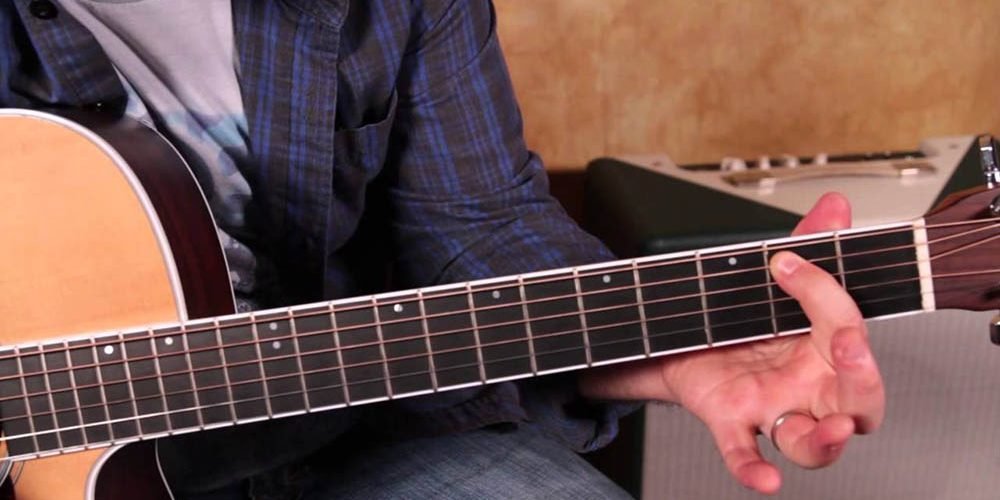Are you an aspiring guitarist, eager to learn how to play this versatile instrument? Whether you’ve just picked up your first guitar or are still contemplating taking the plunge, this article is here to guide you through the initial stages of your musical journey. In this comprehensive guide, we will provide you with essential tips and tricks that will help you develop a solid foundation and set you on the path to becoming a proficient guitarist. So, grab your guitar, sit back, and let’s dive into the world of playing the guitar!
Playing the guitar is a fulfilling and rewarding experience. It allows you to express your creativity, connect with others through music, and embark on a lifelong journey of self-improvement. However, starting out as a beginner can be challenging. With the right mindset, guidance, and practice, you can overcome these initial hurdles and make significant progress.
For a comprehensive guide on playing the guitar and mastering the A minor pentatonic scale, visit play-guitars.com/play-a-minor-pentatonic-scale/.
Table of Contents
Choosing the Right Guitar
Before you begin your guitar journey, it’s crucial to choose the right instrument that suits your preferences and playing style. There are various types of guitars available, such as acoustic, electric, and classical guitars. Research and try different guitars to find the one that feels comfortable in your hands and resonates with your musical taste.
Understanding Guitar Anatomy
To become familiar with your guitar, it’s essential to understand its different parts. Learn about the body, neck, headstock, frets, strings, and tuning pegs. This knowledge will help you communicate with other guitarists, understand instructional materials, and troubleshoot any issues with your instrument.
Holding the Guitar Correctly
Proper posture and positioning are vital for playing the guitar effectively. Sit up straight, support the guitar on your dominant leg, and ensure it rests against your body comfortably. Maintain a relaxed yet stable grip on the neck and practice keeping your strumming hand at a comfortable angle.
Tuning Your Guitar
A well-tuned guitar is essential for producing pleasant sounds. Learn how to tune your guitar using a tuner or by referencing online resources. Regular tuning will ensure that your playing sounds harmonious and in tune with other musicians.
Basic Chords and Strumming Patterns
Beginners often start by learning basic chords and strumming patterns. Begin with simple chords such as C, G, D, and E minor, and practice transitioning between them smoothly. Combine these chords with various strumming patterns to develop rhythm and coordination.
Finger Exercises and Warm-ups
Building strength, flexibility, and dexterity in your fingers is crucial for playing the guitar. Engage in finger exercises and warm-up routines to improve your fingerpicking, chord transitions, and overall technique. These exercises will gradually enhance your finger strength and agility.
Learning Guitar Tabs and Sheet Music
Guitar tabs and sheet music are two popular ways to read and learn songs. Tabs provide a visual representation of where to place your fingers on the fretboard, while sheet music uses traditional music notation. Familiarize yourself with both methods to expand your repertoire and understand music more comprehensively.
Mastering Essential Techniques
As you progress, focus on mastering essential guitar techniques. These include alternate picking, hammer-ons, pull-offs, bending, vibrato, and sliding. Practice these techniques slowly and gradually increase your speed and accuracy over time.
Practicing Regularly

Consistency is key when learning to play the guitar. Set aside dedicated practice time each day, even if it’s just for a few minutes. Regular practice will reinforce muscle memory, improve your playing skills, and help you progress faster.
Expanding Your Repertoire
Explore different genres and styles of music to expand your repertoire. Learn songs that inspire you and challenge your skills. Experiment with different strumming patterns, fingerpicking styles, and melodies to develop your musicality and broaden your horizons as a guitarist.
Seeking Guidance and Learning Resources
Don’t hesitate to seek guidance and utilize various learning resources. Enroll in guitar lessons, either with a local instructor or through online platforms. Join guitar communities and forums to connect with fellow musicians and exchange tips and tricks. Watch tutorial videos and read books or articles that provide valuable insights into playing the guitar.
Overcoming Challenges and Frustrations
Learning any new skill comes with its fair share of challenges and frustrations. Stay patient and persistent during your guitar journey. Break down complex techniques into manageable steps, celebrate small victories, and maintain a positive mindset. Remember, every accomplished guitarist was once a beginner.
Developing Your Own Style
As you become more proficient, focus on developing your unique playing style. Experiment with different chord progressions, scales, and improvisation techniques. Embrace your creativity and let your personality shine through your playing. Your individuality is what will set you apart as a guitarist.
Conclusion
Congratulations on taking the first steps towards learning the guitar! By following the tips and techniques outlined in this article, you’re on your way to becoming a skilled guitarist. Remember to enjoy the process, be patient with yourself, and celebrate your progress along the way. With dedication, practice, and a love for music, you’ll achieve your goals and create beautiful melodies on this incredible instrument.





